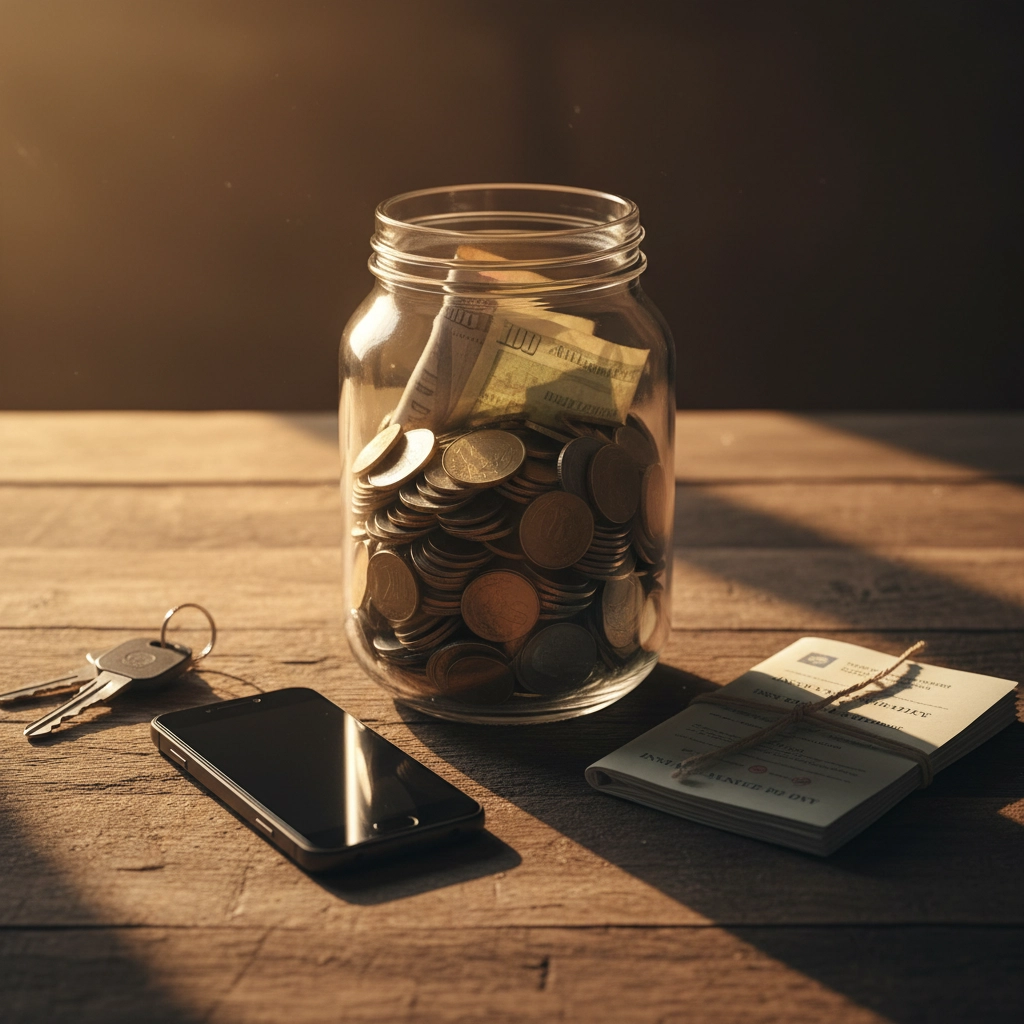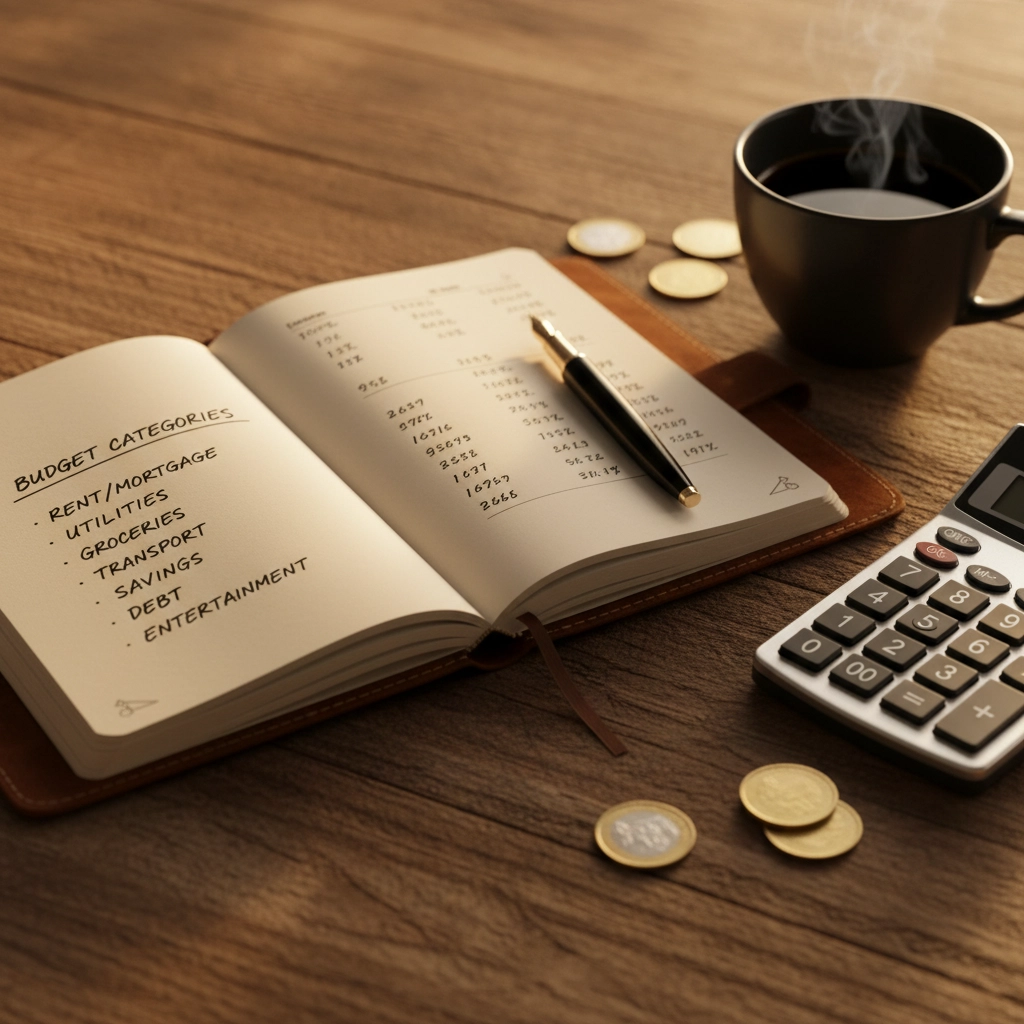Let's be honest – managing money can feel overwhelming. Between bills, unexpected expenses, and the constant temptation to spend, building a secure financial future might seem like an impossible goal. But here's the thing: financial stewardship isn't about depriving yourself or living on ramen noodles. It's about making smart, intentional choices that set you up for long-term success.
Financial stewardship is simply the responsible management of your financial resources to achieve your goals. It involves planning, budgeting, saving, investing, and making wise spending decisions. Think of it as being the CEO of your own financial life – you're making strategic decisions about how to allocate your resources for maximum impact.
The Foundation: Understanding Your Money Mindset
Before diving into strategies and tactics, let's talk about something that often gets overlooked – your relationship with money. How you think about and approach money shapes every financial decision you make. Financial stewardship starts with aligning your heart and attitudes toward money, recognizing that your spending patterns reveal your priorities and values.
Take a moment to examine your bank statements from last month. What do they tell you about what you value? Are you surprised by where your money actually went versus where you thought it was going? This awareness is the first step toward becoming a better financial steward.

The Daily Grind: How Small Decisions Add Up
Here's where things get interesting – and where we coffee lovers need to pay attention. That daily $5 coffee shop visit? Over a year, that's $1,825. Now, I'm not saying you should never enjoy a professionally made cup of coffee (life's too short for bad coffee), but understanding the true cost of our habits is crucial for financial stewardship.
Consider this: instead of that daily coffee shop run, what if you invested in high-quality coffee beans and brewed at home most days, saving those special coffee shop visits for when you really want to treat yourself? You could get exceptional coffee like our Whiskey Barrel Aged blend that delivers a premium experience at home for a fraction of the cost per cup.
The math is simple but powerful. If you brew premium coffee at home for $1.50 per cup instead of spending $5 at a coffee shop, you save $3.50 daily. That's $1,277.50 per year – money that could go toward your emergency fund, debt payoff, or investment goals.
Smart Savings: The Five Pillars of Financial Success
Effective financial stewardship rests on five key pillars that work together to create comprehensive financial health:
Earning is about maximizing your income potential. This might mean pursuing additional education, certifications, or career advancement opportunities. The key is to view your earning capacity as an asset that requires ongoing investment and development.
Saving involves systematically setting aside funds for future needs. Despite knowing saving is important, many people struggle to build meaningful savings. The secret? Start small and make it automatic. Even $25 per paycheck adds up over time.
Spending requires disciplined decision-making about where your money goes. This doesn't mean being cheap – it means being intentional. Every dollar you spend is a vote for the kind of life you want to build.
Giving involves sharing your financial blessings with others and contributing to your community. This pillar keeps money in perspective and prevents it from becoming an unhealthy obsession.
Planning encompasses the strategic organization of your financial decisions to achieve long-term objectives. Without a plan, you're essentially driving without a destination.

Building Your Emergency Fund: Your Financial Safety Net
An emergency fund isn't a luxury – it's a necessity. Unexpected expenses can derail your financial progress faster than you can say "car repair." Your emergency fund should cover at least three to six months of essential expenses.
To calculate your target emergency fund, add up your monthly spending on necessities: rent/mortgage, utilities, groceries, minimum debt payments, insurance, and other must-have expenses. Multiply this by three for your minimum target, or six for a more robust safety net.
Starting an emergency fund can feel daunting, but remember – every journey begins with a single step. Start with small, achievable goals. Maybe it's $500 first, then $1,000, then one month of expenses. Use the SMART goal framework:
- Specific: "I will save $1,000 for emergencies"
- Measurable: Track your progress regularly
- Achievable: Set realistic timelines
- Relevant: Align with your current situation
- Time-bound: Set a deadline
The Art of Budgeting: Your Financial GPS
Think of a budget as your financial GPS – it tells you where you are, where you're going, and the best route to get there. A good budget isn't restrictive; it's liberating because it gives you permission to spend on what matters most to you.
Start by tracking your spending for a month. Every coffee, every subscription, every grocery trip. This might be eye-opening (and possibly horrifying), but knowledge is power. Once you know where your money is going, you can decide if those destinations align with your priorities.

The 50/30/20 rule is a simple starting point: 50% of your after-tax income for needs, 30% for wants, and 20% for savings and debt repayment. Adjust these percentages based on your situation, but the key is having a system that works for you.
Quality Over Quantity: The Investment Mindset
Here's a counterintuitive principle of financial stewardship: sometimes spending more upfront saves money in the long run. This applies to everything from appliances to coffee beans. Investing in quality items that last longer and perform better often provides better value than repeatedly buying cheaper alternatives.
This investment mindset extends beyond physical purchases to your financial tools and strategies. Instead of chasing get-rich-quick schemes, focus on building wealth slowly and steadily through proven methods like consistent saving, investing in diversified portfolios, and continuously improving your earning potential.
Creating Your Financial Action Plan
Ready to put financial stewardship into practice? Here's your roadmap:
Week 1: Track every expense. No judgment, just awareness.
Week 2: Calculate your emergency fund target and current savings rate.
Week 3: Create a simple budget using the 50/30/20 rule as a starting point.
Week 4: Automate your savings. Set up automatic transfers to your emergency fund and other savings goals.
Month 2 and beyond: Review and adjust monthly. Financial stewardship is an ongoing process, not a one-time event.

The Long Game: Building Lasting Financial Security
Financial stewardship isn't about perfection – it's about progress. There will be months when you overspend, unexpected expenses that drain your emergency fund, and financial goals that take longer to achieve than planned. That's normal and okay.
What matters is getting back on track and continuing to make decisions aligned with your long-term financial well-being. Remember, you're not just managing money for today – you're building the foundation for your future self's financial freedom.
The habits you build today compound over time. That daily home-brewed coffee instead of the coffee shop visit, the automatic transfer to savings, the monthly budget review – these small, consistent actions create significant results over time.

Financial stewardship is ultimately about taking control of your financial destiny. It's about making intentional choices that align with your values and goals, whether that's early retirement, buying a home, starting a business, or simply having the peace of mind that comes with financial security.
Start where you are, use what you have, and do what you can. Your future self will thank you for the financial stewardship decisions you make today. And remember – building wealth doesn't mean giving up life's simple pleasures. It means being intentional about when and how you enjoy them.
The journey to financial security begins with a single decision: the decision to take responsibility for your financial future. Are you ready to become the steward of your own financial success?




